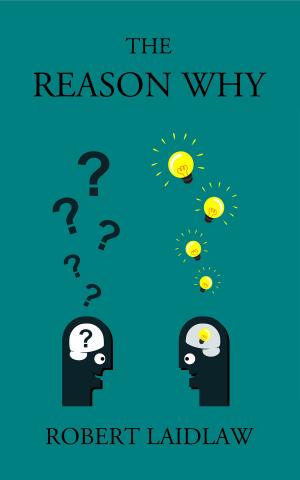Evolution and Special Creation
Nonfiction, Religion & Spirituality, Other Practices, Agnosticism, Atheism, Science & Nature, Science, Biological Sciences, Evolution| Author: | Charles Watts | ISBN: | 1230001972023 |
| Publisher: | CrossReach Publications | Publication: | October 20, 2017 |
| Imprint: | Language: | English |
| Author: | Charles Watts |
| ISBN: | 1230001972023 |
| Publisher: | CrossReach Publications |
| Publication: | October 20, 2017 |
| Imprint: | |
| Language: | English |
Taking a retrospective view of the dark and unenlightened past, when the mighty forces of nature were almost entirely hidden from the human gaze; contemplating the sad spectacle of our forefathers being sunken in gross superstition, ere the light of to-day had arisen above the horizon of mental ignorance, and contrasting the then limitation of knowledge with the extensive educational acquirements now existing, what a pleasing contrast the intellectual advancement presents to the modern observer! Recognizing the glories of nature, and finding ourselves possessed of an amazing amount of information respecting the laws of nature and the phenomena with which these laws are connected—such information being for ages unknown to the great masses of the people—we are prompted to inquire what has produced this marvelous transformation, and to what agency we are indebted for this grand and stupendous revolution of the nineteenth century. Whatever may be the reply of the theologian, whose intellect is too often clouded with dreamy imaginations, the answer of the patient and unfettered student of nature will be that it is to science we owe the magic power which has substituted for the dense darkness of the past the brilliant light of the present. The marvels of astronomy, the revelations of geology, the splendors of botany, the varieties of zoology, the wonders of anatomy, the useful discoveries of physiology, and the rapid strides which have been made in the development of the mental sciences, all combine to unravel the once mysterious operations of mind and matter. While each of the modern sciences has corrected long-cherished errors and opened new paths of investigation, one or two of them have especially tended to unfold to our view the nature, affinity, and development of man, and the wonderful universe to which he belongs. For instance, without the science of geology we should, in all probability, forever have remained in ignorance of the various changes which had taken place on the earth previous to the appearance of man, and the different forms of animal and vegetable life that were then distributed over its surface. We now examine the various strata of the earth, and there discover the fossil remains of animals and plants which existed in the ages that rolled by when no historian lived to pen the mighty transactions of nature and hand them down to future generations. The science of electricity, too, still only in its infancy, promises to confer an amount of benefit upon mankind too vast to be conceived. We hear the thunder roar, and behold the vivid flash of lightning darting before our eyes like an arrow from the bow of the archer; but while we regard this phenomenon we have learned not to look upon it with dread as the vengeance of an angry God, but as a natural result of the operation of known forces.
Taking a retrospective view of the dark and unenlightened past, when the mighty forces of nature were almost entirely hidden from the human gaze; contemplating the sad spectacle of our forefathers being sunken in gross superstition, ere the light of to-day had arisen above the horizon of mental ignorance, and contrasting the then limitation of knowledge with the extensive educational acquirements now existing, what a pleasing contrast the intellectual advancement presents to the modern observer! Recognizing the glories of nature, and finding ourselves possessed of an amazing amount of information respecting the laws of nature and the phenomena with which these laws are connected—such information being for ages unknown to the great masses of the people—we are prompted to inquire what has produced this marvelous transformation, and to what agency we are indebted for this grand and stupendous revolution of the nineteenth century. Whatever may be the reply of the theologian, whose intellect is too often clouded with dreamy imaginations, the answer of the patient and unfettered student of nature will be that it is to science we owe the magic power which has substituted for the dense darkness of the past the brilliant light of the present. The marvels of astronomy, the revelations of geology, the splendors of botany, the varieties of zoology, the wonders of anatomy, the useful discoveries of physiology, and the rapid strides which have been made in the development of the mental sciences, all combine to unravel the once mysterious operations of mind and matter. While each of the modern sciences has corrected long-cherished errors and opened new paths of investigation, one or two of them have especially tended to unfold to our view the nature, affinity, and development of man, and the wonderful universe to which he belongs. For instance, without the science of geology we should, in all probability, forever have remained in ignorance of the various changes which had taken place on the earth previous to the appearance of man, and the different forms of animal and vegetable life that were then distributed over its surface. We now examine the various strata of the earth, and there discover the fossil remains of animals and plants which existed in the ages that rolled by when no historian lived to pen the mighty transactions of nature and hand them down to future generations. The science of electricity, too, still only in its infancy, promises to confer an amount of benefit upon mankind too vast to be conceived. We hear the thunder roar, and behold the vivid flash of lightning darting before our eyes like an arrow from the bow of the archer; but while we regard this phenomenon we have learned not to look upon it with dread as the vengeance of an angry God, but as a natural result of the operation of known forces.















